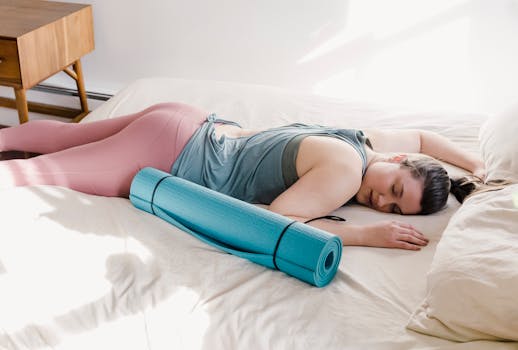
Creating a Balanced Sleep Routine for Better Rest
Creating a balanced sleep routine for better rest is essential for physical and mental well-being. When we sleep, our body repairs and regenerates damaged cells, builds bone and muscle, and strengthens our immune system. Additionally, sleep plays a critical role in brain function, with research suggesting that it helps to clear waste from the brain, consolidate memories, and regulate emotions.
Why is Sleep Important?
Sleep is crucial for our overall health and well-being. During sleep, our body goes through different stages of restoration and rejuvenation. The National Sleep Foundation recommends that adults aim for 7-9 hours of sleep each night, with children and adolescents needing more sleep due to their developmental stage.
Establishing a Consistent Sleep Schedule
Establishing a consistent sleep schedule is vital for creating a balanced sleep routine. This means going to bed and waking up at the same time every day, including weekends. A consistent sleep schedule helps regulate the body’s internal clock, making it easier to fall asleep and stay asleep.
Creating a Sleep-Conducive Environment
Creating a sleep-conducive environment is also essential for better rest. This includes ensuring the bedroom is dark, quiet, and at a comfortable temperature. Investing in a comfortable mattress and pillows can also improve the quality of sleep. Additionally, removing electronic devices from the bedroom, such as TVs and computers, can help reduce distractions and promote relaxation.
Developing Relaxing Bedtime Habits
Developing relaxing bedtime habits can also help improve the quality of sleep. This can include activities such as reading a book, taking a warm bath, or practicing yoga or meditation. Avoiding stimulating activities before bedtime, such as watching TV or scrolling through social media, can also help reduce stress and promote relaxation.
Tips for Creating a Balanced Sleep Routine
- Establish a consistent sleep schedule
- Create a sleep-conducive environment
- Develop relaxing bedtime habits
- Avoid stimulating activities before bedtime
- Get regular exercise, but not before bedtime
- Avoid caffeine, nicotine, and electronic devices before bedtime
Conclusion
Creating a balanced sleep routine for better rest is essential for physical and mental well-being. By establishing a consistent sleep schedule, creating a sleep-conducive environment, and developing relaxing bedtime habits, individuals can improve the quality of their sleep and wake up feeling rested and refreshed.
Additional Tips
In addition to establishing a consistent sleep schedule and creating a sleep-conducive environment, there are several other tips that can help improve the quality of sleep. These include getting regular exercise, avoiding stimulating activities before bedtime, and avoiding caffeine, nicotine, and electronic devices before bedtime.
Sleep Disorders
Sleep disorders, such as insomnia, sleep apnea, and restless leg syndrome, can significantly impact the quality of sleep. If an individual is experiencing difficulty sleeping or waking up feeling rested, it is essential to consult with a healthcare professional to rule out any underlying sleep disorders.
Conclusion
In conclusion, creating a balanced sleep routine for better rest is essential for physical and mental well-being. By following the tips outlined in this article, individuals can improve the quality of their sleep and wake up feeling rested and refreshed.





